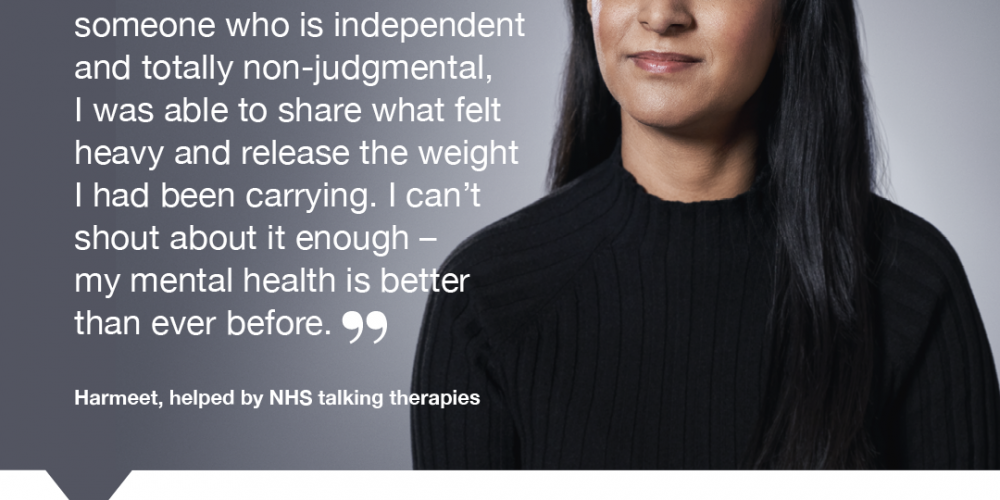A new NHS campaign is encouraging people struggling with their mental health to seek confidential help from NHS talking therapies.
Research shows that nearly half of South Asians put off seeking professional help and the NHS is encouraging them to make use of a range of free services available for anxiety, depression, and other common mental health problems – either by self-referral or by contacting their GP.
A survey commissioned by NHS England and NHS Improvement found that South Asians were more likely to be concerned about their mental health in 2021 (64%), compared to 54% of the general public, and 42% of South Asians didn’t seek professional help after experiencing issues as they didn’t think it was serious enough (compared to 45% of the general population).
However, 69% of South Asians plan to focus more on their mental health in 2022, compared to 59% of the wider public.
Mental Health Therapist Ummar said: “People often think their problems aren’t serious enough to warrant therapy, but if you’re in any doubt, a free, confidential video or in-person consultation with a fully trained expert will quickly assess if you need professional help. You won’t be wasting anyone’s time; the NHS is here to help you. If you’re not fluent in English, there are therapists and translators who speak your language – just ask.”
The NHS offers a range of talking therapies, such as cognitive behavioural therapy (CBT), counselling and guided self-help.
Support is offered in a number of ways, including in-person and video consultations, telephone and interactive text messaging, a self-help workbook with therapist support, online courses, and one-to-one or group therapy.
Harmeet, who was helped by NHS Talking Therapies, said: “When I was down, I didn’t think any kind of therapy would help me. But just talking about my problems and knowing someone was listening instantly provided some relief. Don’t think you’re not worthy of help or that it won’t work – just give it a try, I’m glad I did.”
Visit nhs.uk/help for more information.












